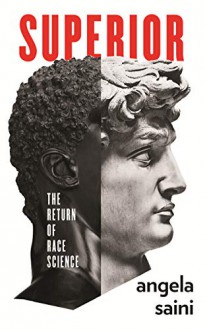An astute and timely examination of the re-emergence of scientific research into racial differences Superior tells the disturbing story of the persistent thread of belief in biological racial differences in the world of science. After the horrors of the Nazi regime in WWII, the mainstream...
show more
An astute and timely examination of the re-emergence of scientific research into racial differences
Superior tells the disturbing story of the persistent thread of belief in biological racial differences in the world of science.
After the horrors of the Nazi regime in WWII, the mainstream scientific world turned its back on eugenics and the study of racial difference. But a worldwide network of unrepentant eugenicists quietly founded journals and funded research, providing the kind of shoddy studies that were ultimately cited in Richard Hernstein's and Charles Murray's 1994 title, The Bell Curve, which purported to show differences in intelligence among races.
If the vast majority of scientists and scholars disavowed these ideas, and considered race a social construct, it was still an idea that managed to somehow make its way into the research into the human genome that began in earnest in the mid-1990s and continues today. Dissecting the statements and work of contemporary scientists studying human biodiversity, most of whom claim to be just following the data, Saini shows us how, again and again, science is retrofitted to accommodate race. Even as our understanding of highly complex traits like intelligence, and the complicated effect of environmental influences on human beings, from the molecular level on up, grows, the hope of finding simple genetic differences between "races"--to explain differing rates of disease, to explain poverty or test scores or to justify cultural assumptions--stubbornly persists.
At a time when racialized nationalisms are a resurgent threat throughout the world, Superior is a powerful reminder that biologically, we are all far more alike than different.
show less

